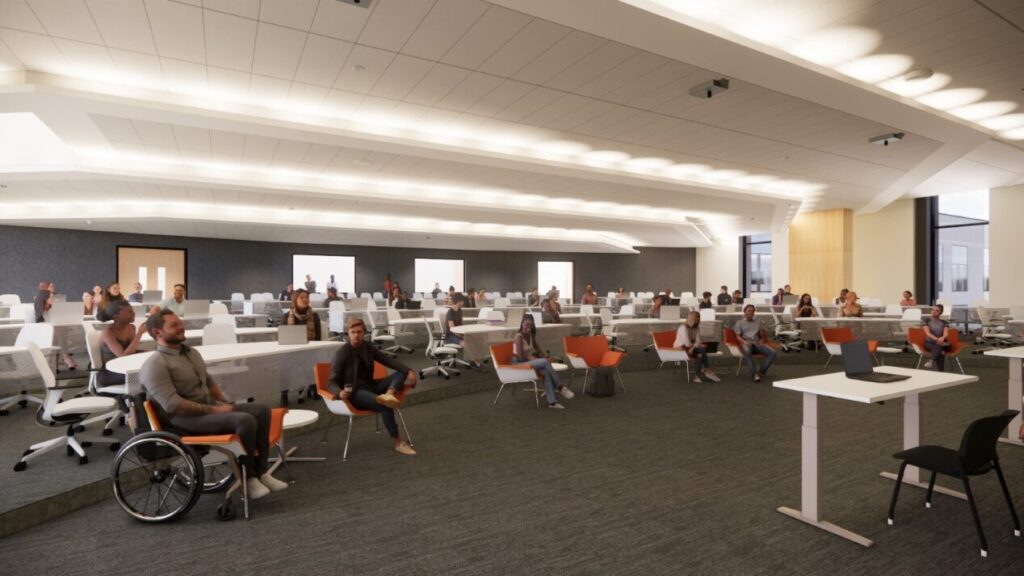
Legislation introduced in the General Assembly would provide $50 million to Colorado State University’s Veterinary Health and Education Complex, providing a key piece of funding that will help CSU revamp its curriculum and expand veterinary class sizes by 20%.
The bipartisan bill, which Gov. Jared Polis announced in a press conference Monday, is part of a package of funding proposals aimed at bolstering Colorado’s healthcare workforce amid shortages of both veterinarians and nurses.
“We are grateful for the forward-thinking, proactive approach the governor and General Assembly are taking to address Colorado’s healthcare workforce shortage,” CSU President Amy Parsons said. “This investment in CSU’s new Veterinary Health and Education Complex will transform the university’s already world-renowned veterinary medical program.
“With the new complex, we will be able to bring excellent education, ground-breaking research and accessible patient care together into state-of-the art facilities. CSU will increase veterinary student enrollment, enhance the experiential education we deliver and provide top-quality care to a growing number of patients from across the state.”
This proposed state funding would assist with construction underway on a $230 million upgrade and expansion of the veterinary medicine and education facilities on CSU’s South Campus – a project that will help the University deliver a major curriculum update to the No. 2-ranked Doctor of Veterinary Medicine program in the country.
A new state-of-the-art Primary Care Clinic and Veterinary Education Center are the centerpieces of the multiple planned improvements, slated to be completed in 2026. The current James L. Voss Veterinary Teaching Hospital, which opened in 1979, sees more than 47,000 veterinary patient visits per year, and cares for animals on farms and ranches through livestock and equine field services. It will also educate the next generation of veterinarians, said Dr. Sue VandeWoude, the dean of CSU’s College of Veterinary Medicine and Biomedical Sciences.


“Our modernized facilities will allow us to serve the needs of the local community by providing a unique setting for our veterinary students to take charge of large and small animal patient care, and gain guided hands-on experience prior to graduation,” VandeWoude said. “We are excited to work with the community partners as we build this program as a resource for pet and livestock owners, as well as Colorado veterinarians who will benefit from greater numbers of employable ‘day-one-ready’ veterinary clinicians.”
The U.S. is projected to have a shortage of three million healthcare workers over the next five years, and will need 41,000 additional veterinarians by 2030. CSU plans to help alleviate this shortage by increasing total class size from 600 to 720 veterinary students, sending more highly qualified veterinarians into the world to care for our companions, and to conduct research that improves the health of animals and humans.
In addition to providing funding to CSU, the newly-announced bill would also make historic investments in three other higher education institutions working to meet the healthcare needs across the state: the College of Osteopathic Medicine at the University of Northern Colorado, the Health Institute Tower at Metro State University in Denver and the Valley Campus Building Addition at Trinidad State.
The funding plan outlined in the bill will need to make its way through the legislative process before landing on the governor’s desk to be signed.
“This historic investment will produce world-class doctors, nurses, vets and other health professionals to provide Coloradans with the care they need,” Polis said. “From Denver to Fort Collins, Greeley and Trinidad, these new programs and facilities will attract students from across the country to our communities. This will positively impact the local economy and ensure Colorado has the strong healthcare workforce needed to provide care to Coloradans today and in the future.”